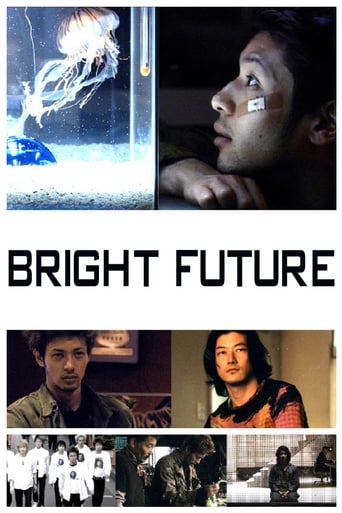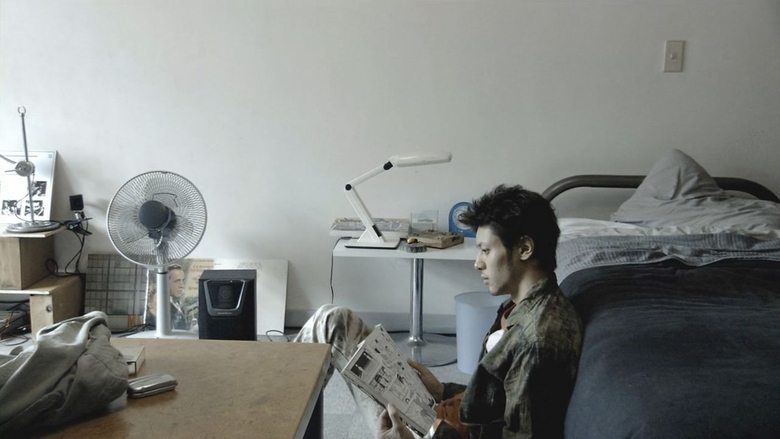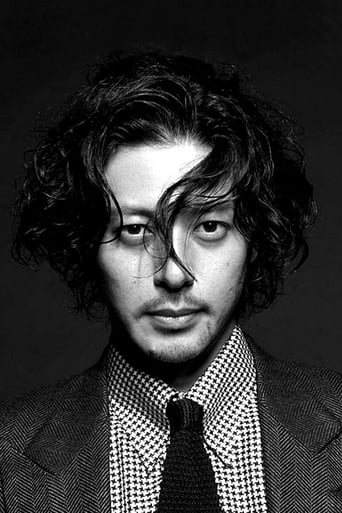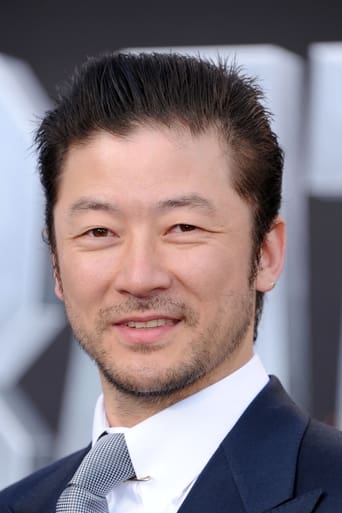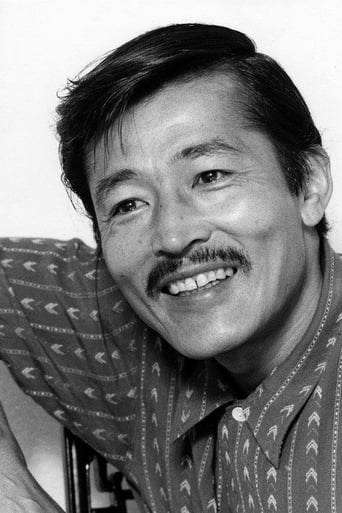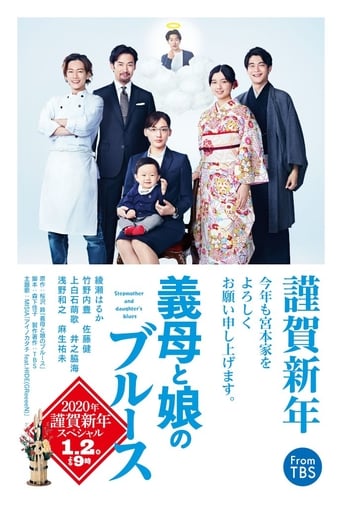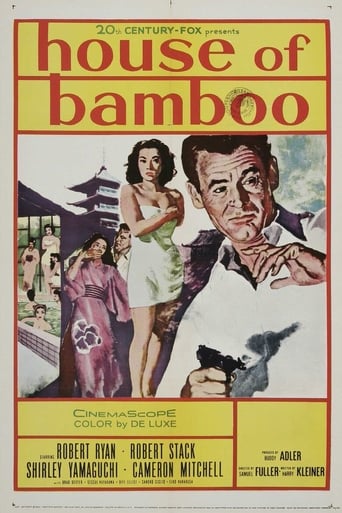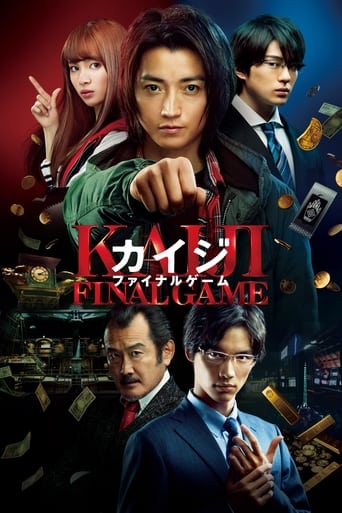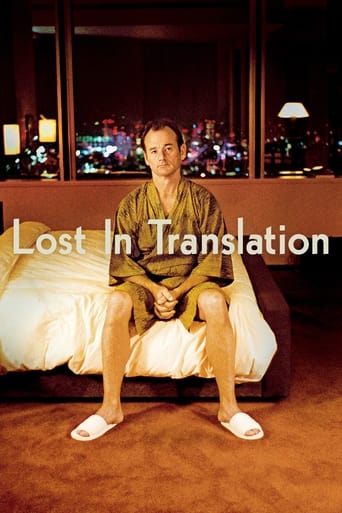Bright Future (2003)
Two friends who work together at a Tokyo laundry are increasingly alienated from everyday life. They become fascinated with a deadly jellyfish.
Watch Trailer
Cast


Similar titles
Reviews
Very Cool!!!
Undescribable Perfection
Let's be realistic.
Like the great film, it's made with a great deal of visible affection both in front of and behind the camera.
You'd be hard pressed to find a film as dull as this one. Seriously, the film is all about how the youth of Japan are becoming apathetic and direction-less, and the film succeeds in showing this. However, nothing happening in a film does not equal high art, as nothing happening in a film equals nothing happening in a film. The first time we tried to watch this, we switched it off after fifteen minutes and didn't touch it for years. Bored one day, I decided to give it another go. I didn't know what bored was until I watched this film. Two moody, unemotional actors representing the youth of Tokyo in a moody, unemotional way (i.e staring into space, mumbling, etc) work in some factory for an over-friendly boss. After moving a wardrobe for him, then having dinner and talking about their pet jellyfish, as well as lounging about in chairs and going out for a boring night out, the boss invites himself to their flat to watch Ping Pong (don't get too excited as they get back to that damn jellyfish again).To cut a very boring story short, one of the guys kills his boss and his wife (offscreen), getting himself arrested. The other guy takes charge of the jellyfish and meets the murderer's dad. Not much happens unless you like talk about water desalination and people standing on roofs, staring into the distance. Full of heavy handed dialogue, long stretches of nothing, people staring at each other and having awkward conversations, plus all that jellyfish action (they get it to take to fresh water where it breeds and multiplier's, resulting in a really exciting part where the jellyfish leave Tokyo, a not very subtle reference to them finding the freedom the youth crave, or something). I mean, the film ends with five minutes of a gang of youths walking down the street, bored.If you're a chin stroking type who has to advertise to the world that your taste in film is superior to theirs, then you'll have a field day picking apart this film's subtext and imagery while the rest of the human race has fun doing something else. This is the most ponderous, boring Japanese film I've suffered through.
Kyoshi Kurosawa is becoming one of my favorite current filmmakers, and the further he gets from conventional horror and shock, the better I think he is.Deeper meanings mingle with absurdist humor, and the kind of chance occurrences that enliven the fiction of Paul Auster and Haruki Murakami also figure heavily in Kurosawa's films; cinematically, everything from Lynch or Fellini to Don Siegel can be a touchstone for further exploration.BRIGHT FUTURE is like an improved CHARISMA - more refined, less loony, and considerably more poetic, but K Kurosawa's many concerns - trashing of the environment, a sense of depersonalization (and discreet nihilism) in younger/future generations, the erosion of a society's cohesiveness (especially when that erosion originates within, and not from some external source) - are handled very well - the last shot offers his darkest humor, with the cross-generational understanding becoming something quietly heroic evoking certain past masters of Japanese film. A sense that - if younger generations have drifted towards a nihilism that could destroy them or you, it is balanced by an equally withering take on the older generations that somehow let them down; this film in many ways visualizes the idea of getting over it, and moving on with life (after presenting some of the consequences for not doing so).Tadanobu Asano's presence here is somewhat hyped (definitely on the DVD cover), undoubtedly due to his ascendant global stardom, but his performance is eclipsed by co-stars Joe Odagiri and Tatsuya Fuji, who both deliver dynamic performances of great range and control.Mysterious, poetic, open to many interpretations, and one of Kyoshi Kurosawa's finest.
The high vote I gave this movie is partly relative--there just isn't much on the shelves these days that isn't tiresome (so I tend to gravitate towards anything that isn't a sequel or remake). So if this film is guilty of anything, it's guilty of being delicate and intelligent. The characters are so subtle they almost escape one's grasp but this isn't a loss and shouldn't deter anyone from watching it. I enjoy thinking back on it now and pondering Yuji, the main character, and his relation to the jellyfish.It is also worthy to note that the visuals aren't overly stylized--they were incredibly detailed and balanced. I liked that I felt increasingly familiar with their world the further the movie went. That must have been very hard to pull off since most movies that re-use scenery like that turn out repetitious. The backgrounds here seem lived in, and judging from the part of the behind-the-scenes that I watched it was filmed in realistic locations.Asano is interesting in this one, not that he usually isn't, but his character seemed far more complex than I expected with each new line of dialog. This movie and the careful construction was so nicely stacked like a house of cards I was almost afraid to breathe in case I would miss something.
Nomura practically does not speak, in fact he could be an idiot. Mamoru seems to live in a constant and intense reflection. They both work in a oushibori factory, where the warm and humid towels given to clients at sushi restaurants are made. When not at work, they spend time playing video games or at the bowling room. Nomura admires the jellyfish that floats in Mamoru's fish tank; in his head, Mamoru can't stop thinking about his plan. They live in Tokyo, from which the spectator only sees trash, recycling material and ageless objects. Once, their boss is interested for both friends; he visits them, speaks with them about their youth. Some time after, Mamoru kills him with the rest of his family. In prison, facing death penalty, he receives the visit from his father, who he hasn't seen in years. The old man repairs old televisions and radios that finds in garbage deposits. It's been a long time since the father gave up to any contact with the world and its social ambitions. This is when Mamoru, quiet and manipulator, sets up the last part of his plan. Kiyoshi Kurosawa, the director of Bright Future,is one of Japan's most ambitious contemporary filmmakers, his work seeks to change the classic forms of cinematography to evoke a state of social reality. Born in postwar Kobe in 1955; he is the author of 17 films and three films for TV. His filmography is full of lonely characters and horror. Bright Future manifests a violent vision of the Japanese youth. Young people with no ambitions nor aspirations of any kind,sicken young people that do not fit in today's society. Violence in its most passive way. Kurosawa uses long and quiet shots, that strike upon the spectator's patience. The father's figure and his technological anachronism serve as a reference to the past, and to contrast the idea that technology drowns the modern Japanese; marginating youth to loneliness, turning them into a disperse society. The film can be interpreted as a ghost story. The ghosts of ideals an hope of social change. Ghosts of memories and ordinary practices, that in Kurosawa's work turn violent, they transform to dead ends. The mise-en-scene is magic, a dream like aesthetic that includes the invasion of Tokyo by an army of poisonous jellyfish. A plastic beauty that accompanies all the questioning and illustrates the consequences of a terrorist act. Bright Future is a philosophical exposition about the individual in society, as brilliant and at the same time as dark, that succeeds to move and interest.

